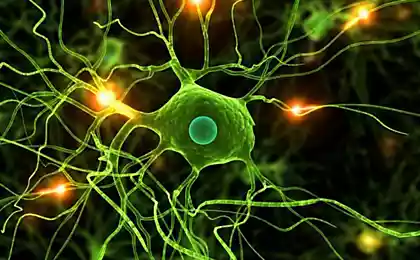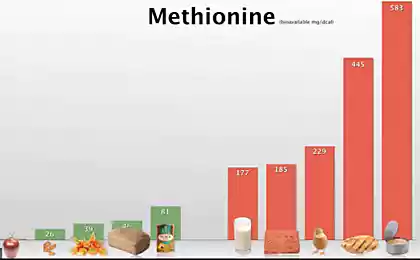217
7 myths about proper nutrition, which is time to debunk
Common misconceptions about diets and foods, confirmed scientific research, and recommendations for a balanced diet.

Introduction: Why are nutrition myths so tenacious?
In the modern world, the amount of information about healthy eating is estimated in millions of articles, videos and recommendations. However, not all of them have a scientific basis. Many tips are based on outdated data, marketing tricks, or simply misinterpretations of individual studies. Sometimes we do not notice how we spread the next “myth”, trusting loud headlines on the Internet.
According to the World Health Organization (WHO), nutrition is one of the key factors affecting quality of life, immunity and the body’s ability to resist disease. It is important to understand that proper nutrition is not a set of strict restrictions, but a conscious choice of products taking into account personal needs and recommendations of specialists. We have some common misconceptions that may lead us astray.
Myth 1. Carbohydrates are the main enemy of harmony
One of the most enduring notions is: “To lose weight, you need to completely eliminate carbohydrates.” However, complex carbohydrates, such as whole grains, legumes and vegetables, on the contrary, are necessary for the normal functioning of the body. They give. energy They help maintain stable blood sugar levels. The problem lies in simple (fast) carbohydrates, which are contained in sweets, baking and carbonated drinks. When overused, they can lead to weight gain. But that doesn’t mean all carbs are banned.
Recommendations:
Myth 2. Fat = harm
The second extreme is the belief that all types of fats are harmful and lead to cardiovascular disease. Actually. fatty (e.g., those found in olive oil, nuts, seeds) can lower “bad” cholesterol and support heart health. Harm often comes from trans fats (margarine, fast food) and saturated They are stained with butter when they are consumed. Complete elimination of fats, on the contrary, can lead to hormonal failures and problems with the absorption of vitamins A, D, E and K.
Myth 3. Drink 2 liters of water per day
The formula “8 glasses of water a day” has become a kind of meme, but everything is much more complicated. The actual need for fluids varies depending on the climate, level of physical activity, age and even diet. In addition, we get some water from food (vegetables, fruits, soups). The standard recommendation is to listen to your body. Drink water when you feel thirsty, and the rest depends on the individual.

Myth 4. "Gluten-free" means healthy.
The gluten-free diet has become popular thanks to celebrities and marketing. However, there is a real need to eliminate gluten. human with confirmed celiac disease or gluten sensitivity (according to various sources, this is no more than 1-2% of the population). For the rest, a voluntary refusal of gluten can lead to a lack of fiber and certain vitamins. “Gluten-free” doesn’t always mean “good.” Often, these foods contain more fat and sugar to improve taste.
Myth 5. Eggs increase cholesterol levels and should be strictly limited
Eggs were once banned because the yolk contains cholesterol. Today, scientific studies show that moderate consumption of eggs (1-2 per day) has little effect on the level of “bad” cholesterol in the blood. But eggs have a lot of protein, vitamins and minerals necessary for the body. Of course, if you have a genetic predisposition to high cholesterol, you should consult a doctor, but for healthy people, eggs do not pose a serious threat.
Myth 6. Fruits in the evening - a blow to the figure
A popular misconception is that fruit should not be eaten after 18:00 due to “excess sugars” that will turn into fat. However, the body does not “switch off” on a schedule, and sugar from fruits (fructose) is not instantly deposited into fat unless you exceed your daily calorie intake. The main thing is to take into account the overall balance between incoming energy and expenditure. If your diet is balanced, a couple of fruits in the evening will not hurt.
Myth 7. “Fractional nutrition” guarantees weight loss
Another popular trend: eat a little 5-6 times a day. It is believed that this allegedly “disperses the metabolism”. But modern research shows that metabolism depends mainly on the total number of calories and composition of the diet, and not on the number of meals. Someone is comfortable eating more often in small portions, and someone prefers 2-3 significant meals. Choose a mode.It is convenient for you personally, without stress and strict restrictions.

Recommendations for a balanced diet
Now that we have debunked some common myths, let’s formulate the basic principles of healthy eating, which are supported by scientific sources and experts:
Conclusion: A conscious approach to nutrition is the key to health
In times of information noise and constant food trends, it is especially important to maintain critical thinking and trust trusted sources. Proper nutrition is not reduced to a list of prohibitions or ready-made universal schemes. More like that. dynamicIt changes your lifestyle and changes with you.
Listen to your body’s needs, consult with experts, and don’t be afraid to debunk outdated myths. After all, it is then that the diet will become not only healthy, but also the pleasure that you will receive from each meal. This is the foundation for a long and active life!

Introduction: Why are nutrition myths so tenacious?
In the modern world, the amount of information about healthy eating is estimated in millions of articles, videos and recommendations. However, not all of them have a scientific basis. Many tips are based on outdated data, marketing tricks, or simply misinterpretations of individual studies. Sometimes we do not notice how we spread the next “myth”, trusting loud headlines on the Internet.
According to the World Health Organization (WHO), nutrition is one of the key factors affecting quality of life, immunity and the body’s ability to resist disease. It is important to understand that proper nutrition is not a set of strict restrictions, but a conscious choice of products taking into account personal needs and recommendations of specialists. We have some common misconceptions that may lead us astray.
Myth 1. Carbohydrates are the main enemy of harmony
One of the most enduring notions is: “To lose weight, you need to completely eliminate carbohydrates.” However, complex carbohydrates, such as whole grains, legumes and vegetables, on the contrary, are necessary for the normal functioning of the body. They give. energy They help maintain stable blood sugar levels. The problem lies in simple (fast) carbohydrates, which are contained in sweets, baking and carbonated drinks. When overused, they can lead to weight gain. But that doesn’t mean all carbs are banned.
Recommendations:
- Include whole grain cereals and bread in your diet.
- Try to eat more vegetables, especially green ones.
- Limit your consumption of refined sugar.
Myth 2. Fat = harm
The second extreme is the belief that all types of fats are harmful and lead to cardiovascular disease. Actually. fatty (e.g., those found in olive oil, nuts, seeds) can lower “bad” cholesterol and support heart health. Harm often comes from trans fats (margarine, fast food) and saturated They are stained with butter when they are consumed. Complete elimination of fats, on the contrary, can lead to hormonal failures and problems with the absorption of vitamins A, D, E and K.
Myth 3. Drink 2 liters of water per day
The formula “8 glasses of water a day” has become a kind of meme, but everything is much more complicated. The actual need for fluids varies depending on the climate, level of physical activity, age and even diet. In addition, we get some water from food (vegetables, fruits, soups). The standard recommendation is to listen to your body. Drink water when you feel thirsty, and the rest depends on the individual.

Myth 4. "Gluten-free" means healthy.
The gluten-free diet has become popular thanks to celebrities and marketing. However, there is a real need to eliminate gluten. human with confirmed celiac disease or gluten sensitivity (according to various sources, this is no more than 1-2% of the population). For the rest, a voluntary refusal of gluten can lead to a lack of fiber and certain vitamins. “Gluten-free” doesn’t always mean “good.” Often, these foods contain more fat and sugar to improve taste.
Myth 5. Eggs increase cholesterol levels and should be strictly limited
Eggs were once banned because the yolk contains cholesterol. Today, scientific studies show that moderate consumption of eggs (1-2 per day) has little effect on the level of “bad” cholesterol in the blood. But eggs have a lot of protein, vitamins and minerals necessary for the body. Of course, if you have a genetic predisposition to high cholesterol, you should consult a doctor, but for healthy people, eggs do not pose a serious threat.
Myth 6. Fruits in the evening - a blow to the figure
A popular misconception is that fruit should not be eaten after 18:00 due to “excess sugars” that will turn into fat. However, the body does not “switch off” on a schedule, and sugar from fruits (fructose) is not instantly deposited into fat unless you exceed your daily calorie intake. The main thing is to take into account the overall balance between incoming energy and expenditure. If your diet is balanced, a couple of fruits in the evening will not hurt.
Myth 7. “Fractional nutrition” guarantees weight loss
Another popular trend: eat a little 5-6 times a day. It is believed that this allegedly “disperses the metabolism”. But modern research shows that metabolism depends mainly on the total number of calories and composition of the diet, and not on the number of meals. Someone is comfortable eating more often in small portions, and someone prefers 2-3 significant meals. Choose a mode.It is convenient for you personally, without stress and strict restrictions.

Recommendations for a balanced diet
Now that we have debunked some common myths, let’s formulate the basic principles of healthy eating, which are supported by scientific sources and experts:
- Diversity of products. The more varied your table is, the more likely you are to get all the vitamins and minerals you need.
- Calorie moderation. Balance your energy consumption and expenditure to maintain a normal weight.
- Restriction of processed products. Avoid excess trans fats, added sugar and salt.
- Adequate protein intake. Protein is needed for tissue repair and normal functioning of the body.
- Regular consumption of fiber. Vegetables, fruits, whole grains and legumes improve digestion and help control appetite.
- Individual approach. Consider your physiological characteristics, preferences and recommendations of the doctor when compiling the diet.
Conclusion: A conscious approach to nutrition is the key to health
In times of information noise and constant food trends, it is especially important to maintain critical thinking and trust trusted sources. Proper nutrition is not reduced to a list of prohibitions or ready-made universal schemes. More like that. dynamicIt changes your lifestyle and changes with you.
Listen to your body’s needs, consult with experts, and don’t be afraid to debunk outdated myths. After all, it is then that the diet will become not only healthy, but also the pleasure that you will receive from each meal. This is the foundation for a long and active life!
12 diplomatic ways to say no: How to give up alcohol without guilt
Secret codes of the body: how to decipher what the words are silent about























